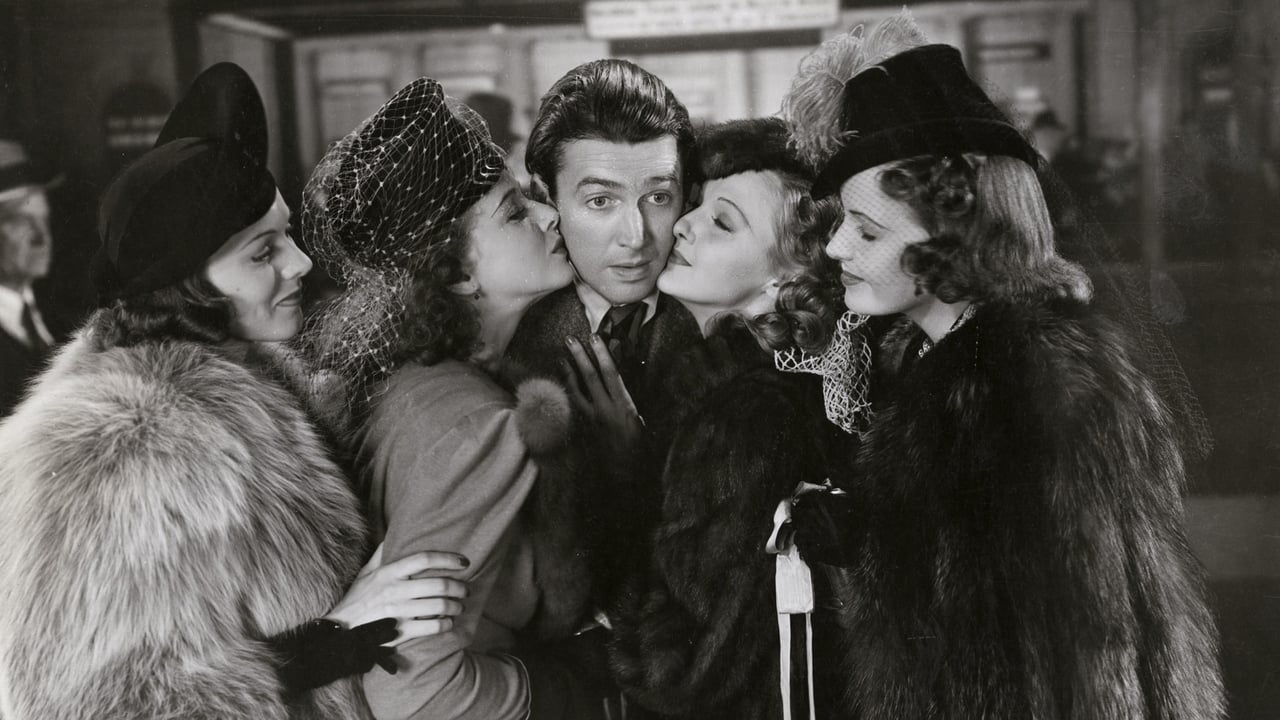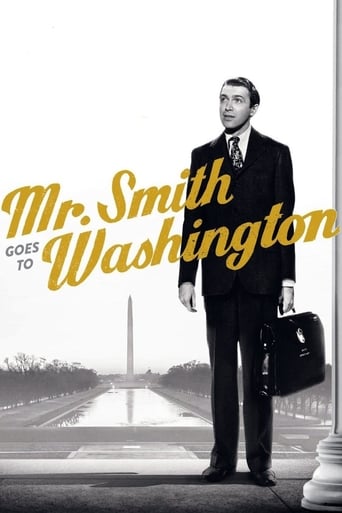

Plot so thin, it passes unnoticed.
... View MoreI like Black Panther, but I didn't like this movie.
... View MoreBlending excellent reporting and strong storytelling, this is a disturbing film truly stranger than fiction
... View MoreExactly the movie you think it is, but not the movie you want it to be.
... View MoreGreetings from Lithuania."Mr. Smith Goes to Washington" (1939) is a very solid movie that could have been great if not for a kinda cheezee ending. I liked the performances in this movie as well as great directing and a truly good (for the time) and kinda inspiring script and story. Overall, "Mr. Smith Goes to Washington" is a movie surely not to be missed one. Its a pure classic, and a very good movie overall.
... View MoreFew films succeed in being relevant a decade or two after its release, but Mr. Smith Goes to Washington is still relevant 77 years later, especially in a voting year with questionable candidates.Before Frank Capra ventured into his war propaganda films in the early-to-mid 40's, he made some of the most important and acclaimed films of all time. In back to back years he directed the 1938 sleeper hit, You Can't Take it With You, and the classic Mr. Smith Goes to Washington. Capra carried some of the same cast members over to the ladder, as Jimmy Stewart, Jean Arthur, and Edward Arnold are among the many who acted in both films. Continuing with the tradition of Capra's other works, Mr. Smith deals with a common man taking on big ideas and ideals, only to be shut down by those more powerful and privileged.This was the film that really showed the world what Stewart could do. Even though I have seen tons of his films, this one stands out as some of his finest acting and most demanding roles of his filmography. He was always great at playing an every-man and someone you can undeniably root for, and Jeff Smith is a defining role for him. Smith represents the audience in going along for this political ride and I loved the way Stewart gave the character a certain amount of innocence and vulnerability while also displaying a graceful and powerful presence as well.Having wonderful chemistry in You Can't Take it With You, it's no surprise that Stewart and Arthur's work together here is just as good, if not better. Arthur plays Clarissa Saunders, who manages to keep Smith afloat even though he's constantly swept away by Washington and all of the extra perks for being in the Senate. It's also not a forced romance, like a lot of 30's films, it takes a while for it to be developed as its handled with care. Arthur may very well be the best romantic partner Stewart ever had.1939 was a fantastic year for film, with Wizard of Oz and Gone With the Wind also being released. But perhaps no film from that year is still as relevant as Mr. Smith Goes to Washington. Capra covers the film with patriotism with beautiful shots of Washington D.C. and a patriotic song here or there, but its his step into a pessimistic style of filmmaking that's most intriguing here. The last 30 minutes with Stewart giving an Oscar worthy performance and Capra seamlessly twisting the story into unpredictable territories is truly something special.+Stewart becoming the Stewart we all love+Arthur is marvelous+Capra's balanced directing10/10
... View MoreThe film is based on an unpublished story. This is another Capra's "gentleman" who travels to the big city. Mr. SMITH GOES TO WASHINGTON is the affirmation of idealism ordinary "small" man, benevolent and noble individuals whose actions can and manages to change the world. Director's style is excellent. Mr. Deeds has already won the audience. Mr. Smith is another part of similar stories and themes. Coincidentally, "man of the people" becomes essential. By chance he comes in the opportunity to learn about the disease of society and to a painful, romantic, compelling and always humor bathed in a way defending real human values. Comedy upgraded socio - political ideological segments. American society, like any other is perishable. It is unlikely that this one little man can change. The culmination of this film returns us faith in the true value.James Stewart (Jefferson "Jeff" Smith) is idealistic and honest man who will soon disappoint the world of high politics. Fantastic performance was launched in the stars. His performance was fantastic.Jean Arthur (Clarissa Saunders) is quiet in search of human warmth. The search for something that would change her monotonous everyday life is at times accompanied by sarcasm. I must admit that I really like her acting. Her experience is growing in the climax of the film. It is again a "trigger" of the main character.The story is a playful and dynamic, perhaps a little more symbolic. The picture is excellent. The dialogues in the troubles are good. Romance is definitely late, but the intimate moments of the main characters are very well designed. It's a strange feeling. Almost all my works great, and I'm still not satisfied. Certainly this movie will not be called controversial. Honesty, love and kindness in times of corruption.
... View MoreI gave it 10 stars--but let's just say I'm good for another 50 years before I see this again. I thought it was sentimental shlock and that Stewart's performance was questionable, and that is the best I can say. When we look at an actor's oeuvre over time, the audience can compare performances, and for me, he was weakest here.I don't like these kinds of movies because they are a deliberate attempt to tug on the heart strings of the audience; the audience is being overtly manipulated. And not a bit of it rang true. That Washington is a cesspool is self-evident from reading the daily news; that someone idealistic could expose Washington on such a flimsy basis as a questionable land deal...About the best moment was when Stewart's Secretary explains how a bill is passed; now that sounded true to life. Guy Kibbee's performance of a corrupt and weak governor was spot on.So given Stewart's weak performance, given the sentimental shlock, given overt audience manipulation--like I say, I'm good for another fifty years before I watch this again.
... View More